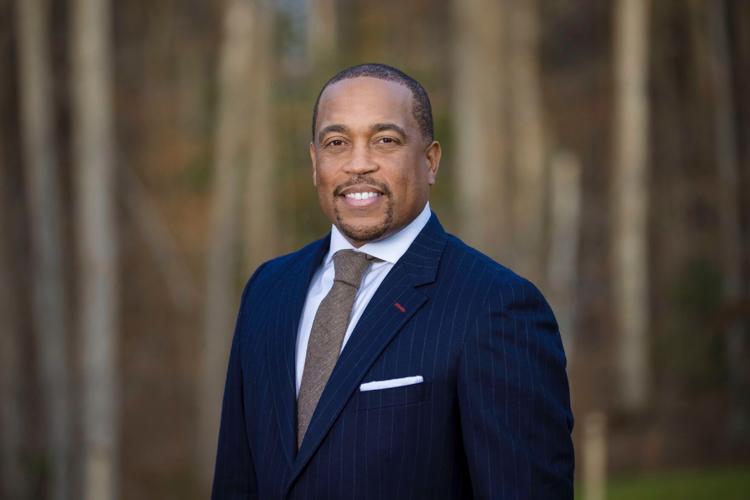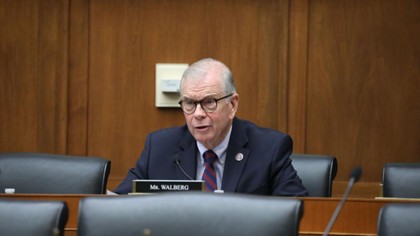31st District Candidate Rod Hall Discusses Early Childhood Education
Earlier this week 31st District Candidate for House of Delegates Rod Hall met with the PW Perspective to discuss a topic that is near to his heart: early childhood education. He addressed several topics from infrastructure of broadband policy to how the schools should re-open.
Governor Northam has initiated an in-return to school mandate, which the school board has voted. What is the most efficient way to make the transition for our students, teachers, and staff?
There is some in-person learning currently occurring and as a father of three sons, this is something I pay close attention to. I have a fifth grader and first grader along with a son in day care, and it’s been a lot to absorb this past year. I think that the best thing that our policy makers and elected school leaders can do is communicate early and often with parents and staff. I believe communication will continue to be the key as we move forward.
It seems as if we’re making progress on the vaccination front but much more needs to be done. The only thing I would call out is the teaching and administrative staff needs to be as invested as much as possible. As we go down this transition road I believe that the teachers feel best if they feel comfortable. Without their input, this transition doesn’t work. We must ensure that the staff has efficient PPP, proper ventilation, we have substitutes who are placed into the testing protocols as well. In addition, we also have a mental health proponent to deal with.
As a parent, I think the best thing I can do is to show patience. We’re all in this together dealing with a pandemic of this magnitude. I tip my hat to our teachers and administrative core. We make sure that they are protected as much as possible.
To meet the staffing needs, there is a chance there may be substitutes who comprise of retired teachers and college students. What do you think?
If there is a need and there are professionals who feel that they are able to come back as an ‘all-hands’ effort, I’m all for it. The caveat is that they are properly vaccinated and are able to perform their duties.
A lot of families are still struggling financially, so what programs can we put in place to provide them with affordable childcare?
I am not shy about chatting with the experts in the field. To a person, they agree that universal pre-K has to be the goal that we aspire to. If chosen as delegate it is something I would be outspoken for. We need high quality care for our children within the state, because it would have significant benefits. Not only for the child but it would provide economic security for the family. We need to provide children with a leg up as they enter pre-K. It is clear that early childhood programs close the achievement gaps and supply with a future workforce. We rank in the middle of the pack in the country and need to do more to invest in their development at an early stage.
Regarding a broadband policy, can you expand on what you would do to ensure that low-income areas have the tools they need for online access?
Approximately 70% of all internet traffic by data volume flows through Northern Virginia, yet the state estimates that there is a quarter of a million k-12 students and college students in the state who lack adequate access at home. One thing about a crisis is that it brings out the best in ingenuity, but it also shows the vulnerabilities and the digital divide is one of them. The current acting SEC commissioner aims for No Child Left Offline, it thinks to how we should change the paradigm in affordability and an essential service, not unlike water, gas, etc. This is an area where government locally and state have a role in affordability as well as infrastructure.
I tip my hat to the county, who has a great relationship with Comcast by offering internet hotspots with bilingual tutorials. It’s clear that there are still families that fall through the cracks. Looking into the year 2028 for universal broadband and it’s a very commendable goal. In looking at the bureaucracy in Richmond and regarding how many entities touches on the broadband issue, we need streamlining in the policy and deployment. I think there’s also an argument that there needs to be a leveling up of the position to broadband advisor for the governor. What happens when there is a change in administration? Do they stay or do they go? This is a critical policy area, and based on my experience, when something is of importance, you give it the appropriate budget authority, and that is what should be done in this regard.
We have the ATI which created in 2016 under Housing and Development. Each project is about demonstrating need in the community. Each year, demand outstretches supply of resources. Does the financing structure need to be examined, such a revolving loan fund that we can touch communities with greater needs? The tobacco commission is involved with broadband policy infrastructure decisions, and they have their own mission as well. There’s the office of broadband assistance which goes to underserved locales.
As delegate, the first thing I’d like to take a look at is are we as lean as we need to be given the dynamic in deployment. Are we leveraging all of the resources to have the most reach to ensure that we are doing everything we can to close the divide? Do we have a singular executive that has the necessary authority to implement the policy and funding decisions that we as a commonwealth would need to push through. Those are some areas that warrant some oversight. Can that dynamic be given a pressure test level look in regards to broadband deployment? We need to make sure the needs in the short run and long run are met.
What can be done to improve literacy rates for early childhood education?
There is a nexus between equipping teachers and improving literacy rates. One, increasing compensation is a thing as poor compensation undermines the recruitment process. This is even more acute for early childhood workers. The early educational development for teachers have the lowest lifetime learning potential of all majors, which validates the dean’s assessment.
As delegate I would be committed to comprehensive development system for our early childhood professionals. This is a subset of the early childhood education development. I would advocate for statewide pathways, comprehensive benefits, with data driven policies in the workforce and scholarship programs. Also, we need to foot the bill for those associate degrees in critical areas such as kindergarten, provided they commit to the program for two years while pursuing higher degrees. This way when children are entering the kindergarten environment, they are prepared. They are entering their kindergarten years less prepared than ever before. It will be necessary to take a comprehensive look to make sure we are doing right for our kids.
There is an opportunity to address deficiencies before moving on to kindergarten. It improves their success in equity. Our schools, faith based communities and businesses will need to make this a collective effort. In the current system, there are roughly 1,000 student families on the waiting list for early childhood education placemen, so the need is there and for policy makers to provide the best programs to ensure our children have the best shot at lifelong learning and success. We’re going to have to reimagine the paradigm. There will never be an unlimited amount of money, we’ll need to leverage dollars in a smart fashion to reach benchmarks.
On Saturday Hall will be hosting a drive-through sign up in Dumfries along with Potomac District Supervisor Andrea Bailey and Councilwoman Selonia Miles from 12:30 – 2pm. Next week he will have a virtual meet & greet with the Montclair Democrats and Progressives is Saturday, February 27.



